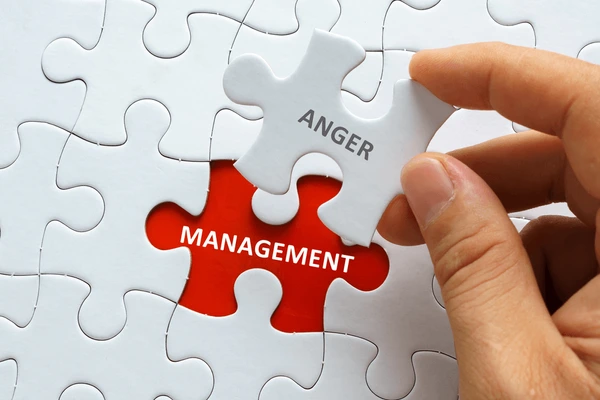-
129, Block-A Bangur Avenue, Mousumi Appartment, Kolkata 700055
129, Block-A Bangur Avenue, Mousumi Appartment, Kolkata 700055

Learn how to manage anger effectively with counselling techniques and guidance from a reputed psychological counselor for long-term emotional balance.
Anger is one of the most common yet misunderstood human emotions. It often arises when we feel threatened, treated unfairly, or unable to control a situation. While many see it as purely negative, anger itself isn’t the problem — it’s a signal. Just like pain tells us something is wrong in the body, anger signals emotional discomfort or unmet needs.
For example:
The key lies in learning to understand and manage anger, rather than letting it take control of us.
Uncontrolled anger doesn’t just harm relationships — it affects the body and mind. But why does it spiral out of control for some people?
Research shows that chronic anger increases risks of high blood pressure, heart disease, and even weakened immunity — proving it’s not “just an emotion” but a health concern too.

When wondering how to manage anger, many try self-help techniques like exercise, meditation, or journaling. While these work, counselling goes deeper by addressing the root causes and providing personalized strategies.
Counsellors help individuals map out patterns — what situations, people, or thoughts spark anger. This awareness builds a foundation for healthier responses.
Example: Someone realizes they get irritable whenever they feel ignored at work. With this knowledge, they can focus on assertive communication instead of silent frustration.
Cognitive Behavioral Therapy (CBT) is widely used in anger management. It challenges distorted thinking like:
Replacing these with balanced thoughts helps reduce emotional intensity.
Counselling teaches techniques such as:
Unmanaged anger often leads to shouting, sarcasm, or silence. Counsellors encourage assertive communication:
Beyond the moment, counselling helps individuals build resilience through:

Here are small steps anyone can try daily to manage anger better:
Unlike quick fixes, counselling offers structured, evidence-based guidance that creates lasting changes.
A client once shared how weekly counselling sessions helped them stop bottling emotions. Instead of yelling at their spouse after stressful days, they learned to discuss feelings calmly. Over time, this improved their marriage, workplace productivity, and health.
You don’t need to wait for a crisis. Consider seeking professional support if you notice:

Q1. Can anger be completely removed?
No. Anger is natural and necessary at times. Counselling helps control it, not erase it.
Q2. How long does anger management counselling take?
It varies. Some feel improvement in a few weeks, while others may need longer depending on intensity and underlying causes.
Q3. Do children benefit from anger counselling?
Yes. Counselling helps children learn self-regulation early, preventing long-term emotional struggles.
Q4. Can meditation alone manage anger?
Meditation helps, but counselling addresses deeper patterns and triggers for more lasting results.
Q5. Is anger always unhealthy?
Not at all. Anger can highlight problems that need attention. The issue lies in uncontrolled expression.
Exploring how to manage anger is more than controlling outbursts — it’s about building emotional intelligence and healthier relationships. With consistent counselling, self-reflection, and daily practices, anger can shift from a destructive force to a constructive guide. Support from the Best psychological counselor in Kolkata ensures that this journey is guided, safe, and deeply transformative.